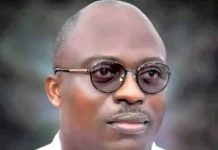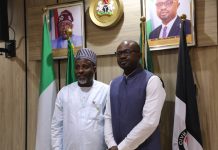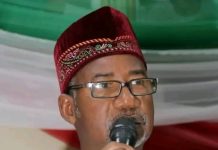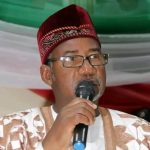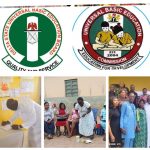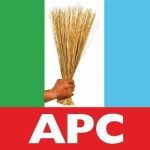The Senator representing Delta North in the National Assembly (NASS), Senator Ned Nwoko, has expressed dissatisfaction over development and Infrastructural deficit in the country 64 years after gaining independence.
He said he was worried if the present situation was the mindset of the nation’s founding fathers who fought gallantly for the Nigeria, as a country to attain her independence from the colonial masters.
Senator Nwoko, an international lawyer of repute cum billionaire businessman, stated this on Tuesday October 1, 2024, in his independence anniversary message he personally signed and made available to journalists in Abuja.
The Senate Committee member on Constitutional review of the 1999 Constitution, lamented that the country has not moved in the pace a man born 64 years ago should move, considering his attainment as one born in same period.
Read the full independence statement below 👇
Nigeria @64: The Imperative for Economic Sovereignty and National Social Safety Net
As Nigeria marks 64 years of independence, I find myself reflecting on the nation’s journey having been born in the same year. Approaching my 64th birthday this December, I cannot help but question whether this is the Nigeria those who fought for its independence envisioned, or indeed, the Nigeria we ought to have achieved by now. Sixty-four years is more than sufficient time for a nation to lay solid foundations, build enduring structures, and craft a vision that serves both its people and posterity. While we have undoubtedly made progress in certain areas, the gaps in our development, particularly in critical sectors, are glaring.
The failure to meet these expectations stems largely from internal contradictions and external pressures—both of which we, as a nation, have either enabled or aggravated. Neocolonialism and the lack of a robust national social safety net remain two of the most formidable barriers to our progress. If we can address these twin challenges, I believe Nigeria can reclaim its potential as a truly independent and thriving nation.
For over six decades, Nigeria has been shackled by the vestiges of neocolonialism. In the wake of political independence, we have continued to grapple with a form of subjugation that is perhaps even more insidious: the economic, political, and cultural dependency that continues to tie us to external forces. Neocolonialism manifests itself through unfair trade practices, external political interference, and the persistent exploitation of our resources. More concerning, we have often been complicit in our subjugation—consciously or unconsciously enabling this dependency through policy choices that prioritize foreign interests over national sovereignty. Why, after 64 years of independence, do we continue to rely so heavily on the West? Why have we allowed ourselves to remain consumers, rather than becoming producers? Why have we surrendered control over the value of our currency, and by extension, our economic sovereignty?
At 64, Nigeria’s currency, the Naira, remains in a state of perilous decline. The persistent depreciation of the Naira against major global currencies, particularly the dollar, is compounded by our misguided practice of paying for professional services in foreign currencies. This has become a drain on our economy, and it must be stopped. One of the critical gaps in our regulatory framework is the absence of an explicit prohibition against the use of foreign currencies in local transactions, particularly in payment for services. This loophole in the Central Bank of Nigeria Act and the Foreign Exchange Act has allowed exploitative practices to persist unchecked. It was in recognition of this that I presented “A Bill for an Act to Amend the Central Bank of Nigeria Act, 2007, No. 7, to Prohibit the Discriminatory Use of Foreign Currency for Remuneration and for Matters Connected Therewith.”
The time has come for all domiciliary accounts in the country to be converted into Naira. These accounts have become a conduit for speculation and arbitrage, further eroding the value of the Naira. Many use them to purchase dollars in the parallel market, hedge against inflation, or hoard foreign currency until the Naira depreciates to a favorable level. This speculative behavior largely accelerates the devaluation of our currency. Besides, funds held in Naira are far more likely to be reinvested into the domestic economy.
Bureau de Change (BDC) operators should return to their original role of facilitating currency exchange for foreigners, while promoting the use of the Naira for all domestic transactions. The value of a nation’s currency is intrinsically linked to its sovereignty. If we do not take decisive steps to enhance the demand for the Naira, we cannot expect others to respect it, let alone trade with it. Sixty-four years is more than enough time for us to assert our economic independence.
I must commend the president, His Excellency Bola Ahmed Tinubu, for introducing and adopting several measures to enhance the value of the Naira. These include compelling banks and IMTOs to disburse diaspora remittances in Naira, issuing new guidelines for BDCs to declare the source of FX and electronically transmit over 70% of FX sales, and the EFCC circular warning businesses against charging for services in foreign currencies. Most recently, the approval to sell crude oil to Dangote Refinery and other local refineries in Naira instead of Dollars was another critical step.
Many of these actions reflect the recommendations I outlined in my January press statement, titled “Urgent Call for the Use of Naira as the Only Legal Currency in Nigeria and to End Other Policies That Unfairly Disadvantage the Naira.” While I commend these efforts, I urge the federal government to adopt a comprehensive strategy by implementing all proposed policies in their entirety as they have proven effective. Adopting them piecemeal will only diminish their overall impact.
As we commemorate Nigeria at 64, it is imperative that we shine a spotlight on the nation’s social safety net. We must ask ourselves: how are our most vulnerable populations surviving? The pervasive issues of poverty and the societal decay it engenders have escalated to a level of urgency that can no longer be overlooked. I articulated this concern in an open letter to the President a few weeks ago, titled “Reimagining Nigeria’s Social Safety Net: A Call to Replace the Ministry of Humanitarian Affairs with a National Social Security Agency Under the Office of the President.”
Social security must be acknowledged not merely as an act of benevolence but as a fundamental right of citizens. The agency would “target and address the needs of the vulnerable population through a more efficient and sustainable system, one that truly empowers rather than pities, one that upholds the dignity and respect every Nigerian deserves. A system that ensures citizens feel truly secure, confident that no matter the circumstances, their basic needs for food and shelter will be met, a system that will provide the government with the necessary space to focus on other critical aspects of governance, free from unprovoked backlash due to perceived neglect or lack of support.”
The issues of neocolonialism and social safety net deficiencies are not unique to Nigeria; they threaten the future of Africa as a whole. Neocolonialism continues to impede the full realization of sovereignty and self-determination for African nations. There is a growing call for African countries to unite and break free from these chains to forge a path toward true independence. The adoption of a common currency – a potent symbol of economic unity, can largely reduce external interference and strengthen intra-African trade. This common currency will not only serve as a shield against currency manipulation but also as a defense against foreign economic pressure. To integrate Africa, our common language must be a common currency and common trade.
True independence for Nigeria and Africa is inextricably linked to the issue of reparations. It is impossible to discuss genuine independence for Nigeria and Africa without addressing the issue of reparations. Discussing independence necessitates an earnest examination of the issue of reparations. I chronicled this in a motion titled “Urgent Need to Demand Reparations for Historical Injustice and Mitigation of Neocolonialism in Nigeria and African Nations.” I am hopeful that the the next decade of the Commonwealth would be dominated by discussions of reparations for the atrocities of slavery and colonization, particularly with the potential for the organization to be led by an African Secretary-General. Notably, the three candidates vying for the position have all articulated their support for reparations for nations impacted by slavery and colonization.
As we celebrate our dear Nigeria at 64, I call on the federal government and my fellow legislators to take action and sponsor policies that will yield true independence and loosen us from the shackles of perpetual dependency.
Senator Ned Munir Nwoko
Senator, Delta North Senatorial District.
Solicitor of the Supreme Court of England and Wales


